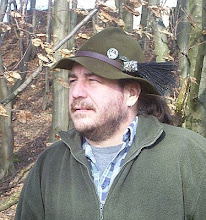Last tuesday the new german internet censorship came into force because it than was undersigned by our bundespraesident, which is the last step in the procedure to make a new law effective. The new CDU-FDP-government swears that it was not intended to make use of it and that it was only a kind of bad legacy of the old CDU-SPD-government. However the law does exist although the general public did not really notice.
Last summer the net community in Germany was quite upset about a new law practically enabling internet censorship via DNS entries. It was planned to engage access providers to refuse connections to certain domains which are on a secret list and showing a stop sign instead of the content of these domains. Alledgedly this was aimed against child pornography, a very threadbare justification for people who know something about the net and the existing of independent sites where you can get unfiltered and uncenmsorerd information. However, a very good justification for the rank and file because most people in Germany, even if on line, dont know much about independent media and as with newspapers, radio and tv they only consume stuff from mainstream media when on the net. They believed the government's statement that the domain blocking system was the only way to keep child porn out of the german net because it frequently would not be possible to shut down the servers for they are situated in foreign countries where authorithies dont care much about what people put on the net.
This was a very clever move: Obviously it was intended to have people being against internet censorship appear as paedophiliacs and discredit them. The worst of all: Doing so German government in fact did not shrink back from connecting a clean and honest demand like the one for freedom of information to such a dirty and criminal thing as child porn is.
However, quite a lot of people protested and tried to show and explain the facts: With a system to block every designated domain the state would be able to easily keep people away not only from child pornography but from anything they should not know too. It was only a minority who yelled a lot and depicted the dangers of such a law and especially the fact that the list of bad domains should be conducted by the BKA (Bundeskriminalamt, something like the FBI in the US) and so would be out of any democratic control.
To people who know a bit about computer and networks the design of the German domain blocking system itself reveals its true intentions: It can be very easily be worked around by just directing the internet connetion to a DNS server which does not filter domains what can be done on every windows, mac or linux sytem by just a few mouseclicks and hacking in a couple of numbers. So it neither can stop people who really want to visit child porn sites nor can it keep really informed and politically interested people away from the sites they want to see. What it can do is to keep the lazy and uninformed general public away from sites with independend information and opinions they heard or red about and just want to have a look at without being too eager to get there. In a nutshell: the German domain blocking system only works very well as a tool to avoid undesired sources of information becoming common.
The protest of bloggers and other people understanding the meaning of free information finally lead to a petition. Beacuse more than 100,000 people signed it, the German Bundestag (our ferderal parliament) had to deal with it in a hearing. However, politicians did not really respond to the objections of the criticians and the law unobstructedly passed the parliament. Firstly Bundespraesident Koehler refused to undersign the new law and demandes more information about the case, which gave some hope to the net community.
Last fall there than was an election and government changed. The new CDU-FDP-government seemed to be not so happy with the censorship law but did not really do anything against it. Now it came into power quite secretly and almost nobody seemed to take notice. Still there is some talk in Berlin about how to get rid of the censorship but I doubt that this is to be taken serious. I guess politicíans just bank on the forgetfulness of the general public and will start to use the censorship law sequretly when nobody will think of it at all.






Now it's here and CDU/FDP are saying that they don't wont it, I wonder how long they really will take to replace the law with something more sensible.
ReplyDeleteOr will it just get forgotten...?